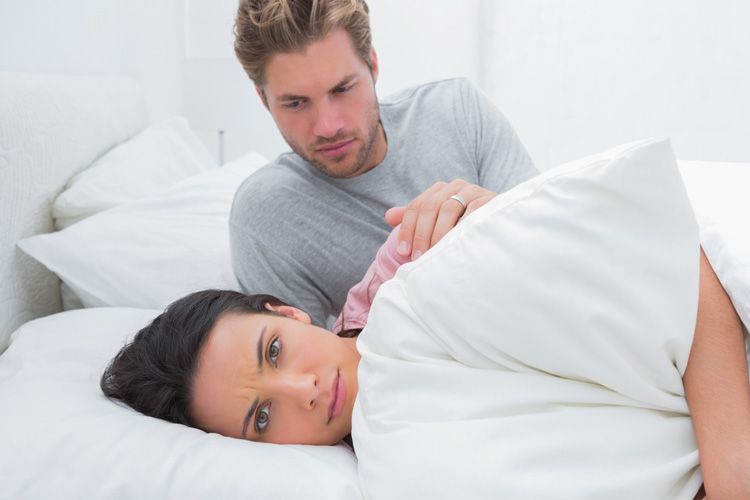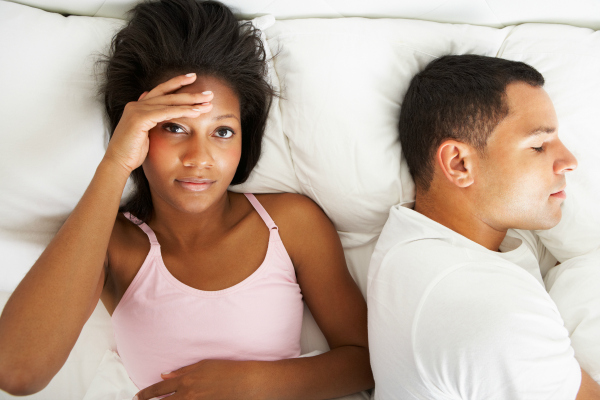
Hypoactive Sexual Desire Disorder
It’s Sexual Health Awareness Month and I need to get a few tidbits out to my patients and viewers to raise awareness of some of the most common issues of female sexual dysfunction people with vaginas face!!!!
Let’s talk about getting our groove back (sorry, I am probably dating myself with this reference).
The most common form of sexual dysfunction impacting at least 40% of people with vaginas is hypoactive sexual desire disorder (HSDD) or low libido that is bothersome. HSDD can happen primarily/lifelong if has always existed or secondary or acquired if it has developed but previous desire was there.
Since the brain is a sexual organ, lets talk about how we are wired and how this impacts sexual response. The prefrontal cortex of the brain is your landscape and this is shaped by two modes–survival mode and reproductive mode. So there are hormones, neurotransmitters, sociocultural cues and environmental that can impact your prefontal cortex and place us in either excitation or inhibition mode . Excitation is the reproductive mode and survival is consistent with inhibition mode ( so think parasympathetic nervous system vs sympathetic –flight or fight response). And keep in mind that most all of sexual dysfunction treatments are aligned with the bio-psycho-social model of treating. Sometimes medications, sometimes working on relationships, sometimes seeking sex therapy but most of the time treatment is a combination of these.
Hypoactive sexual desire disorder is whereby, for at least 6 months, there is either…
1) a lack of motivation for sexual activity manifested by either a reduced or absent spontaneous desire (sexual thoughts and fantasies)
2) reduced or absent responsive desire to erotic cues and stimulation or an inability to maintain desire and it must cause significant personal distress (feeling frustrated, grief, incompetence, loss, sorrow or worry).
That second part is key as I have many patients who no longer have as much desire but it doesn’t bother them or their partner. The other part of this is the lack of desire to initiate and participate and it is not related to sexual pain. Because, of course, if it is too painful to have sex (which I will post about) then you will not have a desire to be in pain.
Screening questions can help identify women who have HSDD.
Questions include:
1) Are you feeling sexual interest or desire?
2) Are you receptive to your partner’s desire and
3) Are you losing your interest in sex once activity begins.
4) To what extent are you concerned or worried about any of the above difficulties
So, there it is, HSDD.
So, either there is too much inhibition or not enough excitation or maybe both. There are many things that impact this including neurotransmitters and hormones like dopamine, oxytocin, melaacortin, vassopressin, norepinephrine, testosterone. Biologically, these promote your brain to turn on the excitation/reproductive mode . Other factors that have an impact on desire include your interpersonal relationships, intimacy, romance, past experiences , having shared values. These can all promote desire.
Serotonin, opioids, endocannabinoids all tend to have a negative impact on desire and increase our inhibition. So does relationship conflict, negative stressors, negative beliefs about sex or bad sexual experiences or trauma.
Given this information, it should be clear that when we treat HSDD, we are targeting those areas. Sex therapy and couples counseling target the psychosocial and interpersonal aspects of sexual desire.
The two FDA approved medications we have on the market for premenopausal patients, Addyi and Vyleesi target the organic/biologic aspects of desire including increasing neurotransmitters that promote a positive desire. Addyi is a medication that you have to take every night for at least 8 weeks before you may see a positive impact on desire. Vyleesi comes in the form of an auto-injector that is self administered at least 45 minutes prior to intercourse. Most sexual medicine health care providers can help you decide which one , if any, may be right for you.

Also looking at medications that you are taking, like antidepressants or centrally acting medications thatmay increase serotonin , certain anti-hypertensives, or even oral contraceptive pills which diminish testosterone, is helpful in your assessment of sexual desire. We also know different times in your life–post-surgical, postpartum, and postmenopausal can impact your desire. Additionally, looking at your partners sexual desire and use of meds as well as your relationship can be helpful is imperative.
Sometimes making time for date night, using erotica (such as that available on the Rosy app developed for low sexual desire) , switching up the routine, role play or using toys and self stimulation , may all be in your treatment plan for HSDD.
In conclusion
It is not uncommon for my your libido to wax and wane–there are medications, hormones, stress that may impact them. Lately, I have had many patients in my office start to become bothered by the lack of their sexual desire. Or their partners and relationships are starting to suffer as a result.
Loss of sexual desire or libido happens for men and women throughout their life. It is not uncommon. Loss of sexual desire with distress can be treated through the biopsychosocial method I have discussed.
If you are always saying “not tonight” to your significant other and using avoidance techniques and it starting to bother how you feel about yourself or your relationship, take charge of your sexual brain and seek help from an ISSWSH (Intenational Society for the Study of Women’s Sexual Health) provider and get your groove back!


